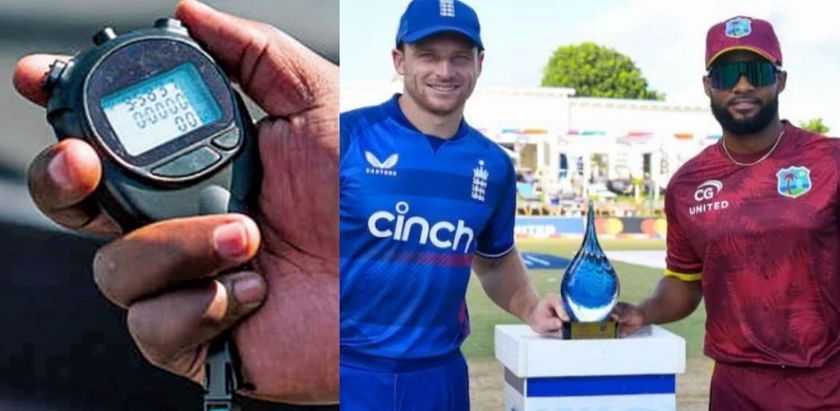
In a bid to bring more order to the game, the International Cricket Council (ICC) has unveiled the revolutionary stop clock rule, set to debut during the England-West Indies T20I on Wednesday. This innovative measure aims to streamline match durations and curb the longstanding issue of slow over rates.
With ODIs typically spanning 8 to 8.5 hours and T20 matches ideally taking 4.5 hours, deviations from these timelines have become commonplace due to tardy over rates. Despite prior efforts, teams have struggled to adhere to schedule, prompting the introduction of the electronic stop clock rule.
Implemented under clause 41.9 of the revised Men's ODI and T20I playing conditions, the stop clock will undergo a trial phase from December 2023 to April 2024, encompassing approximately 59 international fixtures. Activated between overs, the electronic clock initiates a 60-second countdown displayed on the big screen, compelling the fielding side to commence the next over promptly. Failure to do so may result in two warnings and, ultimately, a five-run penalty.
Exceptions exist for scenarios like a new batter taking position, drinks intervals, or injuries, with the third umpire responsible for initiating the timer. The rule accommodates instances beyond the fielding side's control, such as lost balls or broken bats.
Crucially, the stop clock isn't triggered if a delay is caused by the batting side. Umpires hold the authority to assess the situation and make judgment calls, countering intentional time-wasting tactics by batters.
This game-changing rule addresses the chronic issue of slow over rates, ensuring a more disciplined and time-efficient cricketing experience. As cricket enthusiasts eagerly anticipate its trial run, the stop clock stands poised to become a pivotal tool in maintaining the integrity and excitement of the sport.
Picture credit - Sportskeeda

Khushpreet Kaur
Content Writer